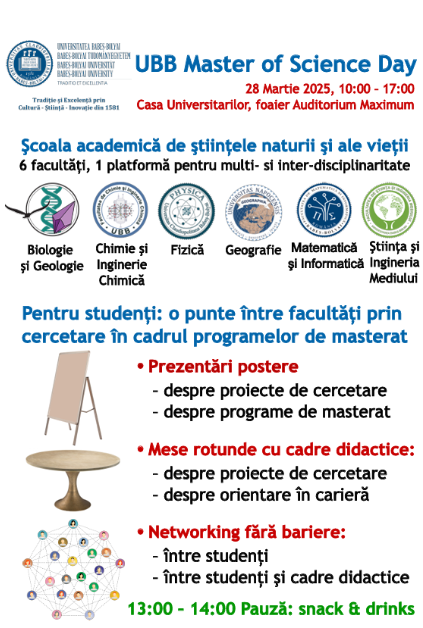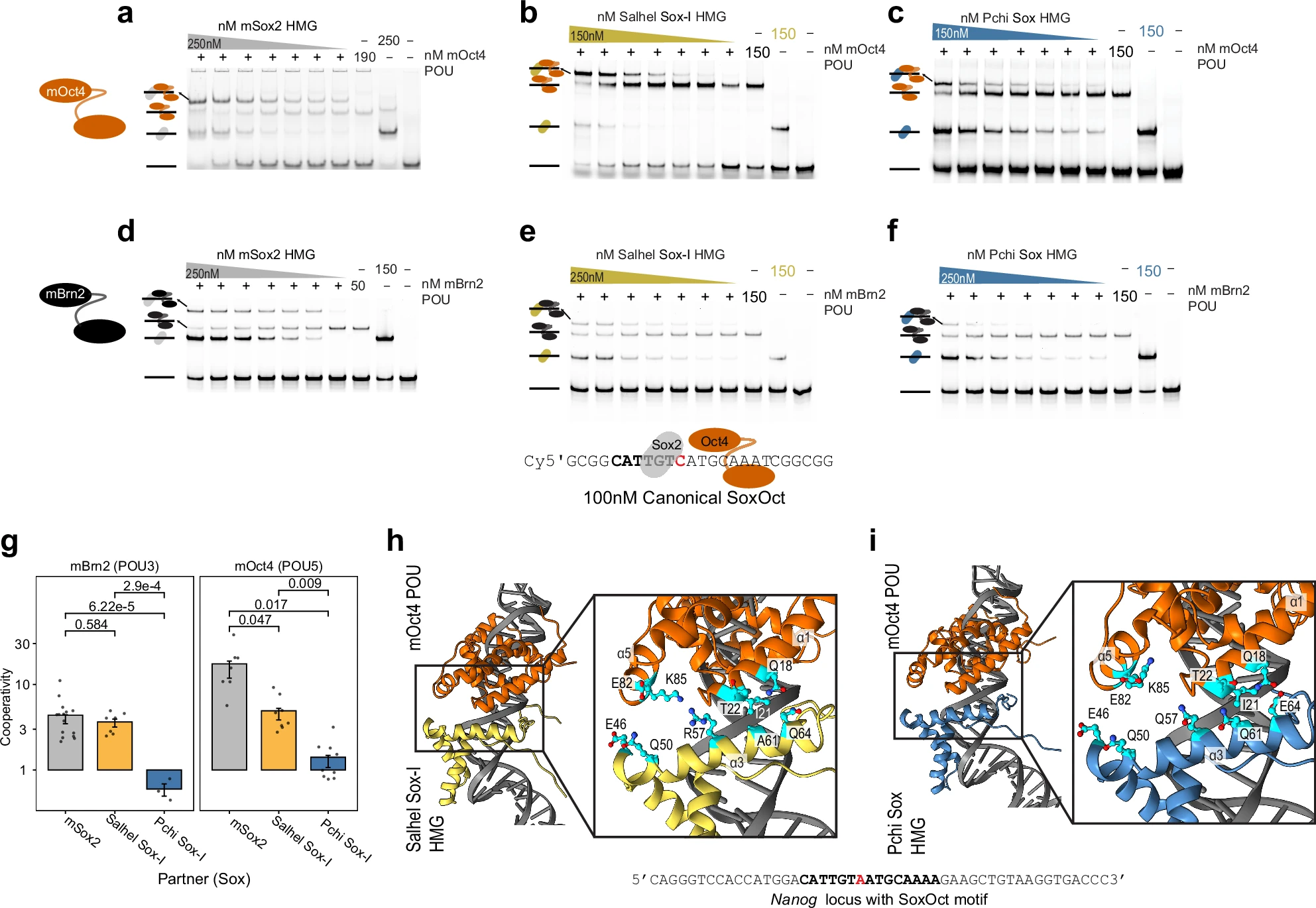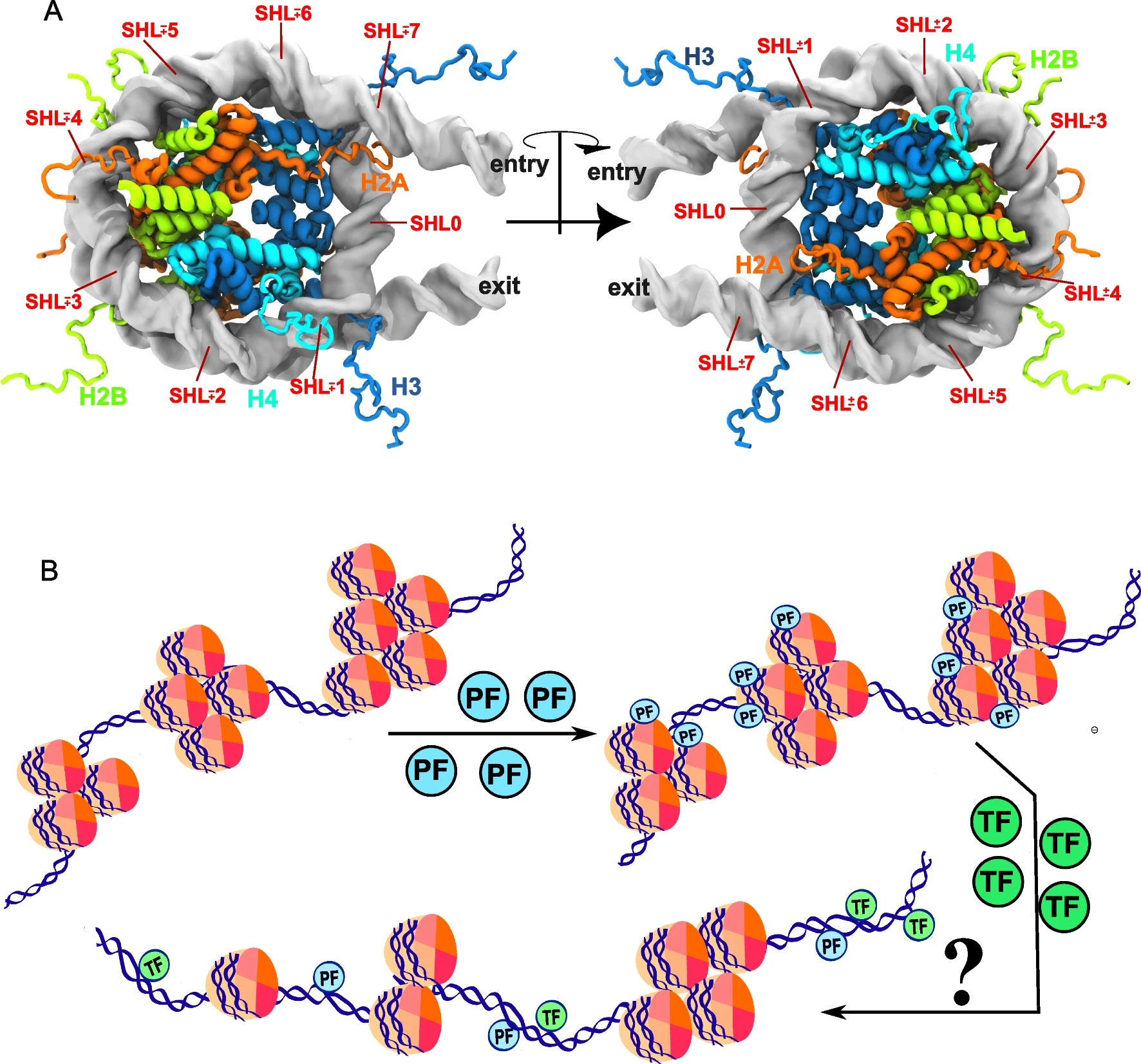News

UBB Master of Science Day
28/03/2025, 10:00 - 17:00
Casa Universitarilor (str. Emmanuel de Martonne, nr 1, foaierul Auditoriului Maximum)
The event is designed and organized by the Academic School for Natural and Life Sciences which includes 6 faculties of the Babeș-Bolyai University (Biology and Geology, Chemistry, Physics, Geography, Mathematics and Informatics, Environmental Science and Engineering) and is dedicated to master's and bachelor's students (and anyone who wants to participate). The event aims to familiarize students with research projects from the multiple master's programs at these faculties and offers a unique multidisciplinary platform where students can explore projects from various fields and discuss with researchers and teaching stuff in an informal setting.
The program includes presentations of research projects and master's programs in poster format (10:00-13:00), a snacks & drinks break (13:00-14:00), and a session of round tables where students can interact informally with researchers and teaching staff (14:00 - 17:00).

The emergence of Sox and POU transcription factors predates the origins of animal stem cells
Nature Communications
Stem cells are a hallmark of animal multicellularity. Sox and POU transcription factors are associated with stemness and were believed to be animal innovations, reported absent in their unicellular relatives. Here we describe unicellular Sox and POU factors. Choanoflagellate and filasterean Sox proteins have DNA-binding specificity similar to mammalian Sox2. Choanoflagellate—but not filasterean—Sox can replace Sox2 to reprogram mouse somatic cells into induced pluripotent stem cells (iPSCs) through interacting with the mouse POU member Oct4. In contrast, choanoflagellate POU has a distinct DNA-binding profile and cannot generate iPSCs. Ancestrally reconstructed Sox proteins indicate that iPSC formation capacity is pervasive among resurrected sequences, thus loss of Sox2-like properties fostered Sox family subfunctionalization. Our findings imply that the evolution of animal stem cells might have involved the exaptation of a pre-existing set of transcription factors, where pre-animal Sox was biochemically similar to extant Sox, whilst POU factors required evolutionary innovations.
Learn more
Structural dynamics in chromatin unraveling by pioneer transcription factors
Biophysical Reviews
Together with our collaborators in Utrecht, we have just published an article reviewing the mechanisms by which transcription factors unravel chromatin. The review comes with a different twist on the topic, highlighting the role of molecular dynamics simulations and nuclear magnetic resonance spectroscopy in understanding these meechanisms
Learn moreEpisode 12 -Vlad Cojocaru: Simulating transcriptional regulation, returning to our home countries, and the scales of the genome
Phase Space Invaders
In the twelfth episode, Vlad Cojocaru and I discuss how the simulation field can integrate further layers of complexity in modeling transcription control and genome organization in humans. Vlad shares his insights on the computational biology of transcription factors, including DNA-mediated allostery and pioneer transcription factors, which are crucial for cellular reprogramming. Our discussion then shifts to the underexplored topic of researchers' returning to our home countries as group leaders. We examine the hopes, fears, and conditions for success in making this transition, aiming to rewrite common narratives from our unique perspectives.
Learn more
ISQBP conference
ATHENS
The 2024 Meeting of the International Society of Quantum Biology and Pharmacology (ISQBP) will take place in Athens on May 19-23. For the past 50 years, the ISQBP has organized dynamic biennial meetings providing a forum to discuss and extend the impact of computational methodologies in the fields of biology, chemistry, chemical biology, and pharmacology.
Learn more